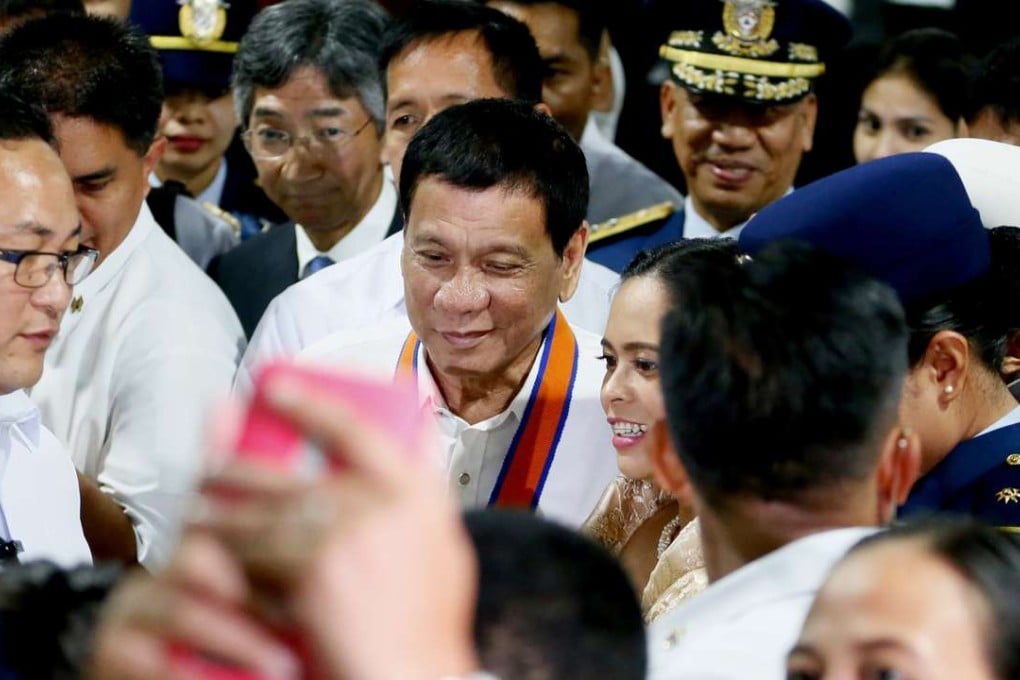Advertisement
Why Duterte’s leaving behind his jet ski on his trip to China
President heads for Beijing in visit that could plot new course
Reading Time:4 minutes
Why you can trust SCMP

The optimism of the couplet carved into the Filipino-Chinese Friendship Arch at the entrance of Manila’s Chinatown seems apt to describe the warming ties between the two countries. The shining gold Chinese characters predict the countries’ bond will “last 1,000 autumns” and the “harmony shall be forever”.
That sentiment may yet reflect the future, but holds less well for the recent past.

Advertisement
When the Philippine president, Rodrigo Duterte, meets his Chinese counterpart Xi Jinping ( 習近平 ) this week in Beijing, he will be putting aside years of hostility to cosy up to the world’s second largest economy – a move made all the more significant by the frosting of relations between his country and the world’s largest economy, the United States.
Before Duterte was sworn in as president in June, Sino-Philippines relations had hit rock bottom. The archipelago nation, then led by Benigno Aquino, had made the gutsy and provocative decision to take China to the international court over their territorial dispute in the South China Sea. The court dismissed China’s claims to the contested waters, making it clear that China had violated Philippine sovereignty by building artificial islands there.
Advertisement

Indeed, when Duterte was running for president, the tough talker claimed he would personally drive a jet ski to the disputed Spratly Islands and plant the Philippine flag.
Advertisement
Select Voice
Select Speed
1.00x